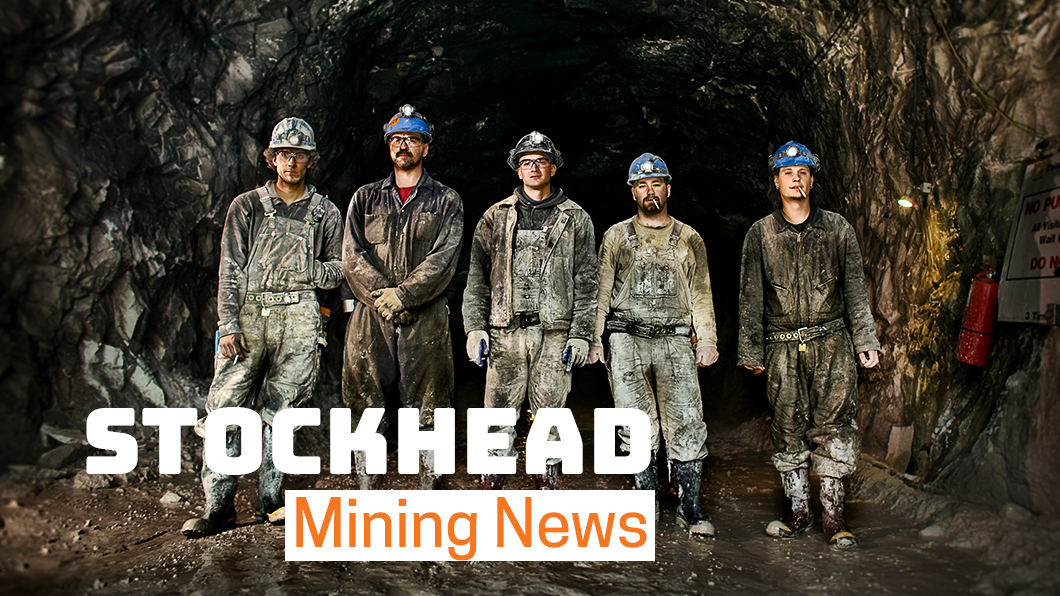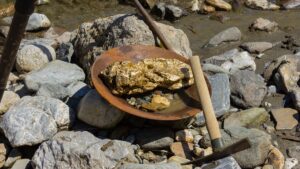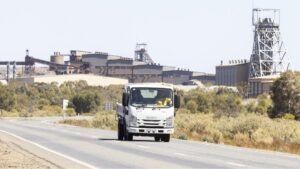Mine Talk: A director that’s floated 12 companies gives his take on growing metals demand, royalties and the environment

Pic: Tyler Stableford / Stone via Getty Images
Mining industry veteran Phil Crabb has seen it all in the 50 years that he has been in the minerals exploration game.
During this time, he floated 12 public companies, most of which were successful explorers before they were taken over.
Some of the standouts include United Minerals Corporation, whose high-grade Railway iron ore deposit adjacent to BHP Billiton’s (ASX:BHP) Mining Area C led the mining giant to make a $204m takeover offer, and Gascoyne Gold Mines.
Gascoyne, which found the Yilgarn Star deposit, was taken over by Sons of Gwalia and Coeur D’Alene Mines.
During this time, Crabb also discovered the Plutonic Bore gold mine, Black Lady gold mine, the Mt Henry gold resource near Norseman, the Copernicus nickel deposit in the Kimberley, and the Marvel Lock gold mine.
He is currently involved with Ora Gold (ASX:OAU), which holds the majority of the Abbotts Greenstone Belt just 20km northwest of Meekatharra and is looking to carry out a low-cost development of its existing shallow gold resources like the Crown Prince prospect within the Garden Gully project.
Ora is also looking into the potential for volcanogenic massive sulphides at its projects after intersecting base metal hits while drilling the Government Well prospect.
Metals demand on the way up
Speaking to Stockhead, Crabb expressed his belief that demand for metals would increase.
“I think a lot of guys take the viewpoint that the world population is increasing and the standard of living is increasing as well, so there will be greater demand for metals,” he said.
“Also there is a great demand for greening the planet. Well everything starts with the mine. If you want to green the planet you need to get the mine started, it won’t work otherwise.
“That’s why these guys are saying you have to dig up the lithium, graphite, cobalt, copper and everything that goes with it.”
He added that while Australia was in a good position to benefit from this expected growth, the governments also needed to put more back into the industry.
“They take good royalties from very profitable and not-so profitable companies, but they should be giving more back to some of the companies that are exploring,” Crabb said.
“They don’t understand that you explore or you die. They have got to do something, that’s my opinion and that of a lot of guys in the industry.”
Crabb also called for a clean-up of the native title process and environmental issues related to mining.
“Obviously if you are going to mine, you have to dig a hole, you have to some environmental impact,” he added.
“But a lot of good projects have been slowed or crashed by people that do not have a pragmatic approach to what mining is about.”
Another point that greatly annoys Crabb is people holding onto ground.
“If they can’t drill or work it, they should let it go. There are many greenfields areas in WA that are never going to be looked at because people keep stalling how they are going to do it.”
Crabb also believes that more can be done beyond extracting raw materials from the ground.
“There is more that we can do to industrialise the country. There should be downstream processing that will benefit employment and benefit Australia.
“Its woeful at the moment, all our wonderful discoveries — even in the biotech world, all get shifted away overseas.
“If more assistance was given to the manufacturers early on in their careers it would be better. We certainly could be processing some of the dirt here.”
At Stockhead, we tell it like it is. While Ora Gold is a Stockhead advertiser, it did not sponsor this article.
UNLOCK INSIGHTS
Discover the untold stories of emerging ASX stocks.
Daily news and expert analysis, it's free to subscribe.
By proceeding, you confirm you understand that we handle personal information in accordance with our Privacy Policy.








